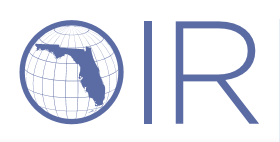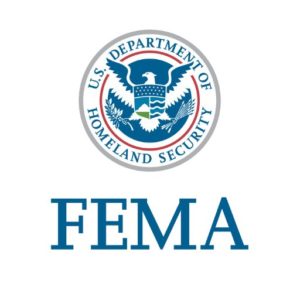Regulatory & economic perspective
 There’s lots to catch-up on with the coronavirus and Florida from a regulatory and economic impact perspective. We have a complete roundup of the latest insurance and financial regulatory guidance as well as Florida’s take of the federal relief plan and state-assistance programs underway.
There’s lots to catch-up on with the coronavirus and Florida from a regulatory and economic impact perspective. We have a complete roundup of the latest insurance and financial regulatory guidance as well as Florida’s take of the federal relief plan and state-assistance programs underway.
On the regulatory front: The Florida Office of Insurance Regulation (OIR) has taken a balanced approach to date on COVID-19, with its latest two Informational Memorandum. OIR-20-03M requires regulated companies to review and update their Business Continuity Plans, notify OIR if they have activated their Plan, and notify immediately if operations are compromised to the point of jeopardizing essential services to policyholders. OIR-20-04M provides leniency on premium payments, removing exclusions on certain personal auto exclusions, virtual options for underwriting and claims inspections, and a list of general considerations, per OIR’s dedicated Coronavirus webpage.
The state has also eased the rules to allow licensed 4-40 customer service reps to work outside their agency office, to allow work from home. It’s also extended the Assignment of Benefits (AOB) Data Call deadline to June 1 and waived the affidavit requirement within the data call.
What the Florida Medical Association couldn’t get done before the legislature last year, it’s trying to do now through OIR. It has asked Insurance Commissioner David Altmaier to require insurance companies to reimburse health care providers the same rates for telehealth services as in-person visits. Many companies have already expanded access to telehealth, but insist they should have the freedom to make their own reimbursement rates with providers. Meanwhile, Governor DeSantis Issued an Executive Order directing that telehealth services be allowed for state employees on state health and pharmacy plans.
OIR’s monitoring and encouraging the insurance companies to step up their customer service is the best approach. Regulators can then focus on carriers that need more than encouragement in these times. For the most part, insurance companies rise to the occasion in times of crisis.
The Office of Financial Regulation (OFR), likewise, is easing regulatory requirements as it urges banks to do everything possible to ease the economic burdens on businesses from the virus. “Reasonable efforts to make new loans and modify the terms on existing loans of affected customers will not be subject to examiner criticism,” OFR Commissioner Russell Weigel wrote in a letter to institutions he oversees. Banks and credit unions are responding with things like one-month loan deferral payments and special low-interest relief loans with up to four years repayment.
Florida’s state agencies are closed to the public through April 19, but will remain in operation via phone and email. Some employees are working from home and others from the office.
 On the economic front: While there is encouraging news that the coronavirus is expected to have little impact one way or the other on property catastrophe reinsurance lines, there is concern that P&C lines in general will suffer from the general economic slump that’s expected. Florida unemployment claims for the week ending last Friday numbered 74,021, up from the 6,463 claims filed the previous week, as more businesses have had to shut down to prevent the virus’ spread.
On the economic front: While there is encouraging news that the coronavirus is expected to have little impact one way or the other on property catastrophe reinsurance lines, there is concern that P&C lines in general will suffer from the general economic slump that’s expected. Florida unemployment claims for the week ending last Friday numbered 74,021, up from the 6,463 claims filed the previous week, as more businesses have had to shut down to prevent the virus’ spread.
Also this past Friday, Congress passed and the President signed the $2.2 trillion CARES Act to provide economic relief to the country. Florida’s share will be $8.3 billion ($4.6B state and $3.7B local governments) along with a variety of additional funding, according to Florida TaxWatch. Here’s a handy checklist of how the CARES Act can help you, courtesy of the U.S. Chamber of Commerce.
In addition, the President approved a Major Disaster Declaration for Florida, opening the way for a 75% federal cost share on state and local emergency protective measures. FEMA has issued this Public Assistance Simplified Application Fact Sheet. Governor DeSantis activated the Florida Small Business Emergency Bridge Loan Program designed to provide employers with 2-100 employees a quick, interest-free loan up to $50,000 to bridge the gap until a business secures other funds, whether it be insurance payments or longer-term Small Business Administration (SBA) loans. The SBA loans are up to $2 million at 3.75% for up to 30 years.
LMA Newsletter of 3-30-20

